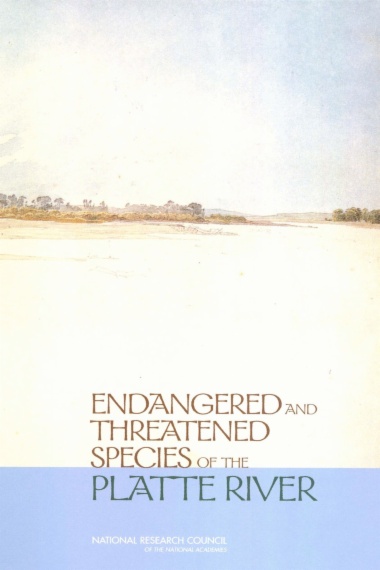The tension between wildlife protection under the Endangered Species Act and
water management in the Platte River Basin has existed for more than 25 years. The
Platte River provides important habitat for migratory and breeding birds, including
three endangered or threatened species: the whooping crane, the northern Great
Plains population of the piping plover, and the interior least tern. The leading factors
attributed to the decline of the cranes are historical overhunting and widespread
habitat destruction and, for the plovers and terns, human interference during
nesting and the loss of riverine nesting sites in open sandy areas that have been
replaced with woodlands, sand and gravel mines, housing, and roadways. Extensive
damming has disrupted passage of the endangered pallid sturgeon and resulted in
less suitable habitat conditions such as cooler stream flows, less turbid waters, and
inconsistent flow regimes. Commercial harvesting, now illegal, also contributed to
the decline of the sturgeon.
Endangered and Threatened Species of the Platte River addresses the habitat requirements
for these federally protected species. The book further examines the scientific
aspects of the U.S. Fish and Wildlife Service's instream-flow recommendations and
habitat suitability guidelines and assesses the science concerning the connections
among the physical systems of the river as they relate to species' habitats.
- Cover
- Front Matter
- Summary
- 1 Introduction
- 2 Regional Context for Water and Species
- 3 Law, Science, and Management Decisions
- 4 Scientific Data for the Platte River Ecosystem
- 5 Whooping Crane
- 6 Piping Plover and Interior Least Tern
- 7 Pallid Sturgeon
- 8 Conclusions and Recommendations
- References
- Appendix A: Biographical Information on Committee Members
- Appendix B: Bird Species of Conservation Concern in Nebraska
- Appendix C: Confirmed Whooping Crane Sightings in Central Platte River Study Area, 1942-2003
- Appendix D: Input Data for Figures 5-6 a and 5-6b

